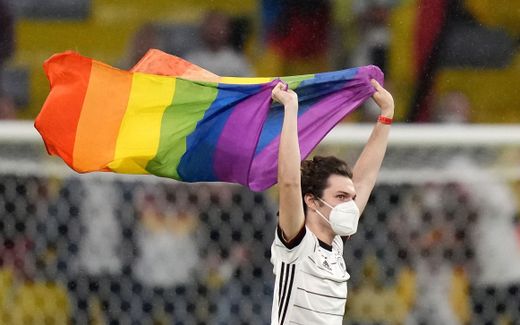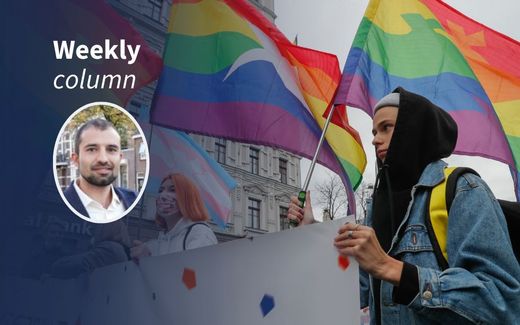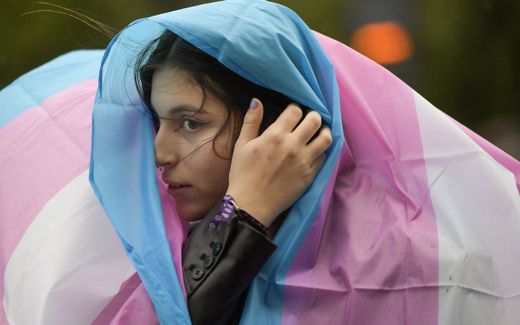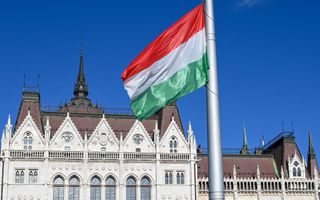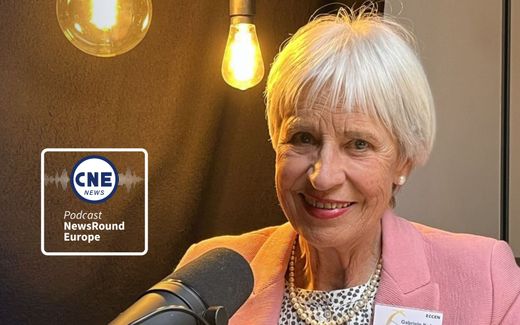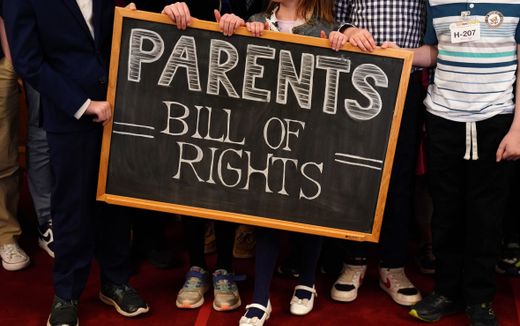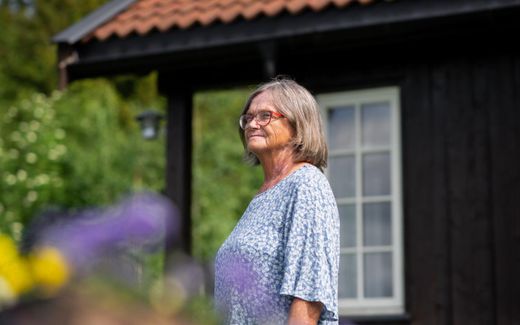Could it be that Orbán speaks for many parents who feel embarrassed about Pride?
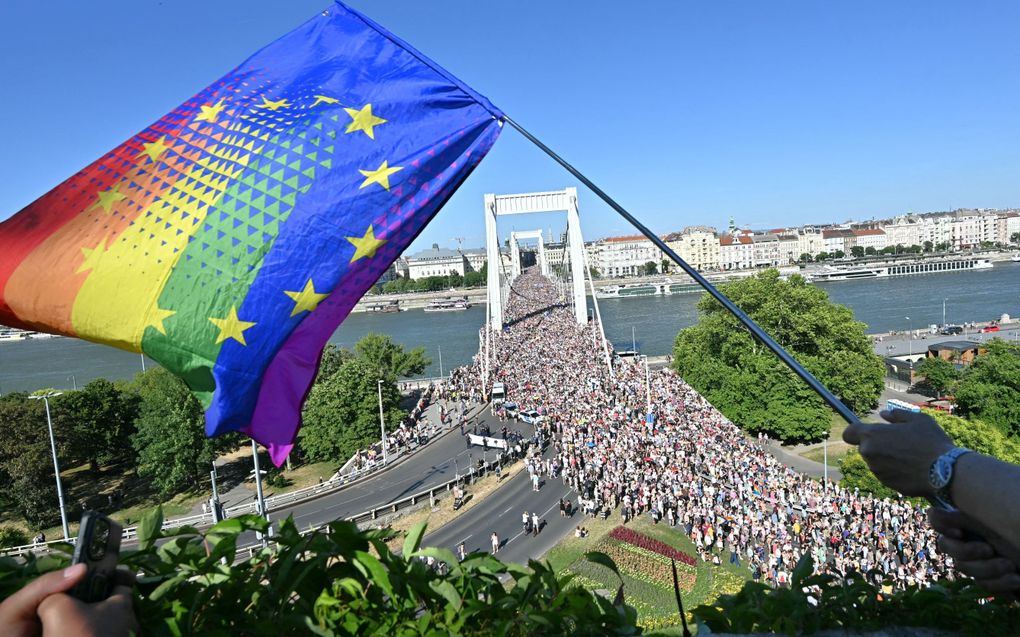
The EU flag is used to give 'cover' to the rainbow. EU representatives confirm this picture. Photo AFP, Attila Kisbenedek
Central Europe
Let’s be honest: this whole anti-Pride plan of Viktor Orbán exploded in his face. Instead of the usual 35,000 participants, there were 100,000 in Budapest last Saturday. Or even 200,000, if some are right. Numbers do not count any more here, since it became a world event. Still, the question remains whether Orbán has a point somewhere.
Stay up to date with Christian news in Europe? Sign up for CNE’s newsletter.
The Hungarian capital became a magnet for at least 70 MEPs (Members of the European Parliament). Many national politicians came to participate, too. The mayor of Amsterdam, the ‘gay capital’ of the world, Femke Halsema, gave a speech in which she strongly rebuked Prime Minister Orbán’s government.
What did they come for? For the good! They were all full of outrage against the Christian Conservative government of Hungary. They wanted to show themselves to be virtuous.
As a journalist, I have been following Viktor Orbán almost from the beginning of his leadership in 2010. And if I have seen one thing, this is a fighter. He needs it to be opposed. It is the enemy that makes him focused.
This works both ways. For many politicians from Western Europe, Orbán is the bad man they love to hate. The enemy Orbán loves most is Brussels. In a radio interview last week, he compared Brussels with Moscow, the earlier enemy. And Von der Leyen (EU Commission President) was compared with Brezhnev (the Soviet Communist Party leader).
Is this all reasonable? Probably not. But he himself is branded as a “fascist” (by Greta Thunberg). And so everybody has taken a position in this battle. The trenches are deep again. And all virtuous people shout that they are right.
The broader picture is one of the European Union, which consists of member states that live in different worlds. For Western European countries, the EU was an alliance that brought peace after the Second World War. For this reason, equality and anti-discrimination are the keywords. The sexual revolution of the 1960s has been implemented into policy.
For the Central European countries that were under Socialist rule until 1990, this is entirely different. Europe is a means that helps them to survive as a nation state, instead of being part of a larger union. And the EU is also a way to say farewell to an ideology that promises a human paradise. They have seen enough social experiments to know that also a sexual revolution will eat its own children. This is why several member states in this region have a line in their constitution that defines marriage as a union of one man and one woman. They don’t trust same-sex marriage as being something of the future.
On all those points, Hungary is very much in line with other member states in Central Europe but much more outspoken. Hungary is a conservative country with its unique history and character, and Viktor Orbán’s personality plays a role in this, too.
Remarkably, the march participants used the EU flag to seek protection. This is understandable. The highest representatives of the European Union had given signals that Orbán was on the wrong path. Quite a few all representatives of Western European countries in Budapest last week echoed the exact words of EU Commissioner for Equality, Hadja Lahbib: “The right to be exactly who you want, to love who you want, and to march for your rights are fundamental freedoms of our Union.”

One can debate whether this is all true legally. Fundamental freedoms are written down in treaties, and I don’t see those there. The EU Charter for Fundamental Rights guarantees equal treatment before the law and prohibits discrimination based on sex, race, colour and –indeed– sexual orientation (Article 21). But that is not the point at stake here. The charter is silent about marriage. The EU has no common policy on (gay) marriage; member states have the freedom to go their way. And above that, the days when Pride was only about sexual orientation have gone.
And then the use of the word “fundamental”. People tend to use this if the truth they are formulating is not fundamental but speculative. What truth is at stake here? Gay rights? Not really. In Budapest, there are more rainbow flags in the streets than in the city where I live. As a gay person, you cannot marry in Hungary, but you can register your partnership. Beforehand, there is no reason to believe that Hungary gives unequal treatment to people of another colour, religion or sexual orientation.
On the other hand, it is clear that the preferred image in Hungary is not that of the homosexual couple. It is a conservative country. And for this reason, the government has introduced laws to protect children against the open promotion of homosexuality. Orbán can refer to the EU Charter for this, since Article 24 starts by saying: “Children shall have the right to such protection and care as is necessary for their well-being.”
You could say: this makes homosexual couples into second-class citizens. For those Western European lawmakers who have put the complete normalisation of rainbow family life as the goal, this is stunning.
One of the sensitive things for the government is the display of near-nakedness in Pride marches in other countries. There have even been complaints about simulated sex acts. The organisation of the Budapest Pride very cleverly asked the participants, “Don’t wear less than you would on the beach”, for this reason. Mayor Halsema might be very proud of the Canal Pride in Amsterdam. Still, she knows that many parents, even from her own city, would never take their children there, partly because of the nakedness.
Let me illustrate this with a contribution from an unexpected source. When the Europeans were organising their role in the Budapest Pride, gays on the other side of the Atlantic were celebrating 10 years of same-sex marriage in the US. One of them, Andrew Sullivan, wrote a very critical opinion article in The New York Times. He says the gay movement has gone astray and radicalised. From reform, it went to revolution. From fighting for freedom for their own minority, they now try to change everybody to get a better world.
But in this, he sees one big mistake. “In the gay rights movement, there had always been an unspoken golden rule: Leave children out of it.” But what did the gender revolutionaries do? “They focused almost entirely on children and minors”, because of the trans and queer agenda that is introduced in schools.

Probably logic, says Sullivan, because if you want to change the world, you have to start with children. But there is another logic, too, and that is that this will backfire on homosexuals. As soon as the public feels that it is controlled too much and is not free any more to say that the baby is a girl or a boy, “toleration will swiftly end”. This will change the situation for everybody in the long abbreviation 2SLGBTQIA+.
And then there is the debating culture within the LGBT movement. In the past, everything could be said. The movement was against all forms of censorship. But after 2015, Sullivan says, “dissent became anathema.” The movement’s truths are “theological command” now.
One can claim that Mr Orbán puts “fundamental EU rights” at stake (whether true or not). Still, this American author warns the Western world of radicalisation. To make children aware of the gender spectrum, the LGBT battle is no longer for LGBT adults only.
What if those 70 MEPs spoke to all the parents in their own cities who stay away from their local Prides? Those fathers and mothers don’t shout loudly and perhaps prefer to keep silent. They feel embarrassed by the (near) nakedness that is taught as “fundamental freedom”, but they choose to raise their children with other values. They stay away from this out of fear of sexualising their children. They realise that their feeling is not popular, but they don’t complain about this because they know that those 70 MEPs would never stand up for their freedoms. Could it be that Prime Minister Orbán is speaking for the “fundamental freedoms” of those parents?
Related Articles


